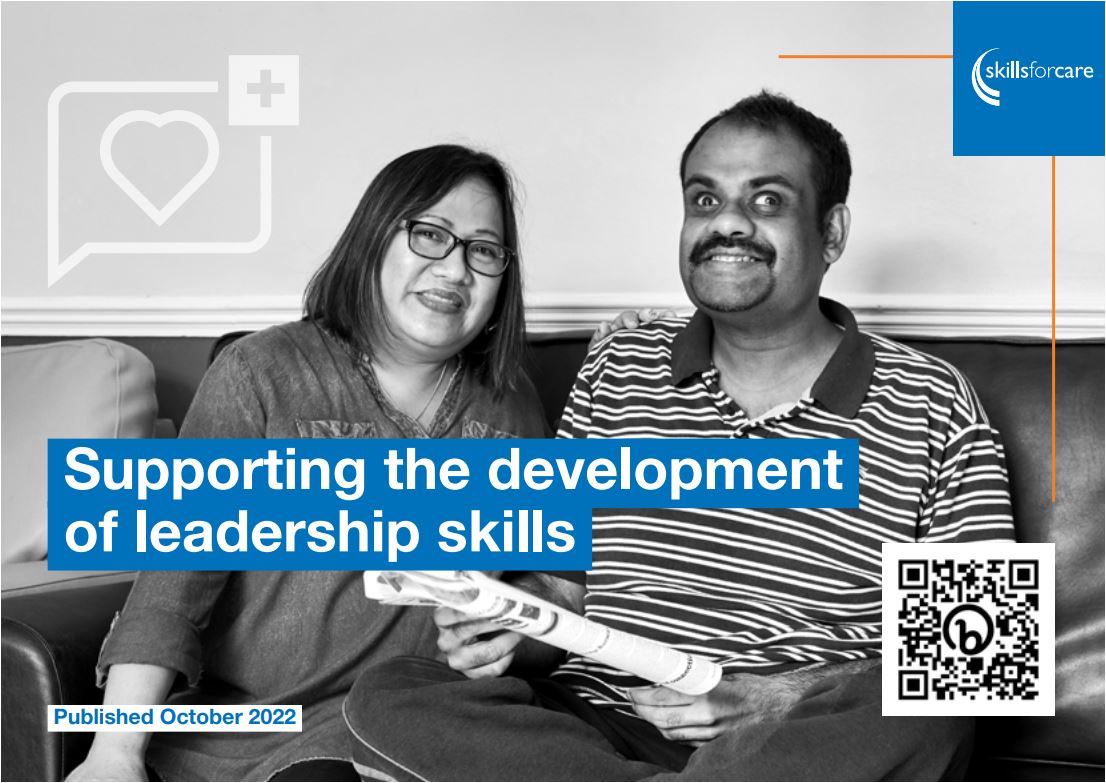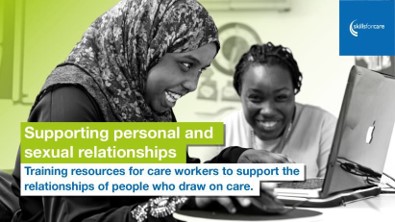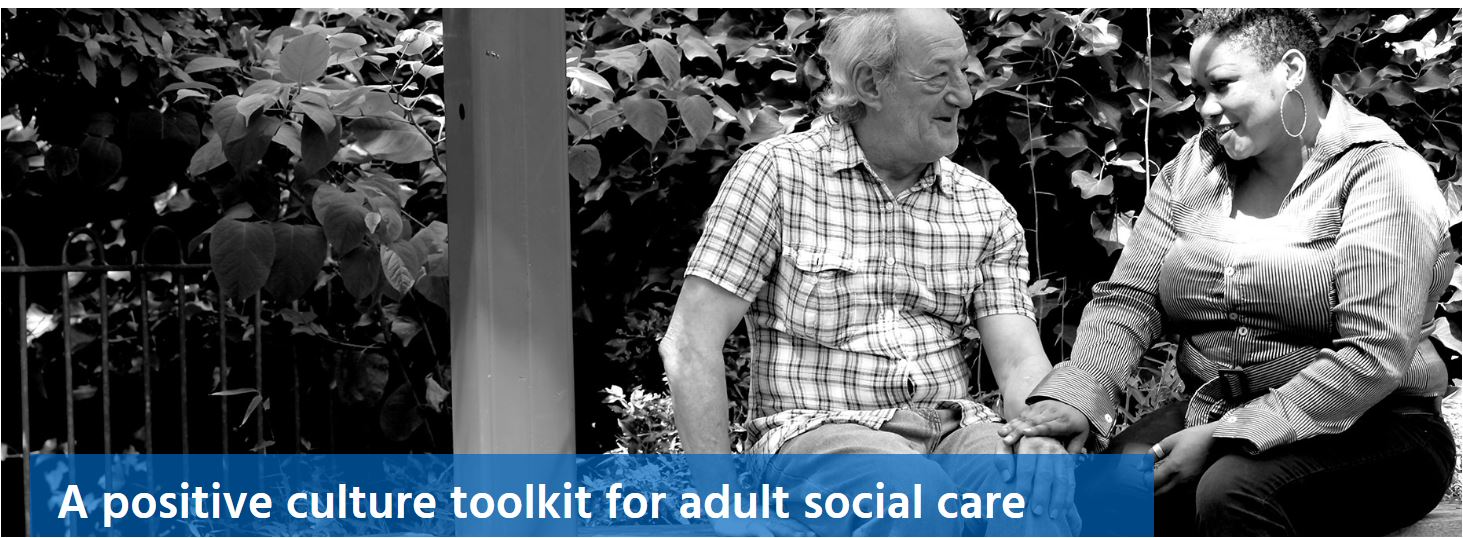Resource Library: Skills For Care
-
A Positive Culture Toolkit for Adult Social Care
Our toolkit will support you at different stages of your workplace culture journey to establish, maintain and improve your workplace culture so that it’s inclusive, compassionate and collaborative.
A positive culture toolkit for adult social care (skillsforcare.org.uk)
Developing Your Workforce
Explore the importance of developing your workforce through skill-building and professional development initiatives. Learn how to enhance the skills of your employees for improved productivity and success in the workplace.
It’s important that staff are equipped with the right skills and knowledge to provide high quality care and support.
Investing in learning and development opportunities also supports staff retention. Workers feel valued because they can see you’re investing in them. Find resources and tools to support you with the development of your workforce.
Developing your workforce
Digital Leadership Programme
Skills for Care and The National Care Forum have refreshed their successful digital leadership programme designed specifically for registered managers working in social care.
The four day programme, delivered virtually, has been developed to build confidence and ability to identify and embed digital technology in the delivery of care and support.
Digital leadership programme (skillsforcare.org.uk)
Embrace digital with our current opportunities
Adult social care is undergoing significant change as it embraces the opportunities that new technologies provide. These advancements are streamlining business operations and empowering people who draw on care and support, essentially reshaping how services are delivered and experienced.
Equipping social care staff at all levels with essential digital skills is more important than ever. To fully embrace the benefits of these technologies, employees must develop the confidence and competencies to effectively use digital tools.
Skills for Care is committed to supporting this transformation by offering a range of resources and opportunities designed to help those working in adult social care to enhance their digital skills. By focusing on both leadership development and broader digital competency, the sector can achieve better outcomes for care providers and people drawing on care and support.
Explore the current digital opportunities with Skills for Care
LGBTQ+ Learning Framework
This learning framework for working with LGBTQ+ people in later life aims to provide a base for identifying the insights, knowledge, understanding and skills that the social care workforce need to help them work affirmatively, inclusively and effectively with individuals from gender and sexually diverse communities. This project was funded by Skills for Care and was developed by Dr Trish Hafford-Letchfield (University of Strathclyde) in collaboration with the LGBT Foundation.
LGBTQ+ learning framework (skillsforcare.org.uk)
Making Integration Happen
During July, we’ve been focusing on integration between health and social care – exploring what integration means, why it’s important for those drawing on services and how it can benefit health and social care organisations. We’ve also looked at how people working in social care and their partners within integrated care systems (ICSs) can work together to make integration happen.
Our focus on #IntegratedCare (marketingusercontent.com)
New Guidance Released to Support Care Workers in Providing Care to LGBTQ+ People in Later Life
Skills for Care has published a new framework to support social care workers in providing care to older lesbian, gay, bisexual, trans, queer (LGBTQ+) people.
This new framework was commissioned and funded by Skills for Care and developed by the University of Strathclyde and the Pride in Ageing programme at LGBT Foundation. It was created in collaboration with older LGBTQ+ people.
The release of this framework comes as LGBT+ History Month is recognised across the UK in February.
New guidance released to support care workers in providing care to LGBTQ+ people in later life (skillsforcare.org.uk)
Statutory and Mandatory Training Guide for Adult Social Care Employers
Statutory and mandatory training is a key aspect of an overarching induction process which helps to prepare workers for their role.
Statutory training: This training is usually required by law or where a statutory body has instructed an organisation to provide training based on specific legislation (i.e. the Health and Safety at Work Act 1974 and the Management of Health and Safety at Work Regulations 1999).
Mandatory training: This is compulsory training that is determined essential by an organisation or service commissioners for the safe and efficient delivery of services. This type of training is designed to reduce organisational risks and comply with local or national policies and government guidelines, such as training set out in the Fundamental Standards, such as Regulation 18 – Staffing, which states that staff must receive the support, training, professional development, supervision and appraisals that are necessary for them to carry out their role and responsibilities.
Statutory and Mandatory Training Guide for Adult Social Care Employers
Supporting the Development of Leadership Skills

Whether you’re a leader looking to develop your own skills, or are planning the development of future leaders within your organisation, we’re here to help.
Supporting the development of leadership skills (skillsforcare.org.uk)
Back to topSupporting Personal Relationships

Everyone has the right to have personal relationships, including the full breadth of people who draw on care and support services, regardless of the type of support they access.
The adult social care workforce needs to have the right values, skills and knowledge to support people they care for to have positive personal relationships. We've produced a range of resources to help employers think about what workers need to know so they can create a development programme for their organisation.
Supporting personal relationships (skillsforcare.org.uk)
Skip Culturally Appropriate Care GuideSkip Curious About Care Skip The Care ExchangeCulturally Appropriate Care Guide

